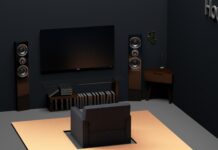In today’s fast-paced world, we are surrounded by visual stimuli. Pictures and videos dominate social media, and people are constantly sharing their experiences with the world. Having a good camera can enhance these experiences, and capture them in a way that can be shared for years to come. In this article, we will explore why every man needs a good camera, and provide tips for choosing the right one.
Why Every Man Needs a Good Camera
Preserving Memories
A good camera can capture moments that we may not have the opportunity to experience again. Whether it’s a family vacation, a special event, or a once-in-a-lifetime opportunity, having a camera to capture these moments can provide us with memories that can be cherished for a lifetime.
Enhancing Creativity
Photography can be a form of art, and having a good camera can enhance our creativity. With the right camera, we can experiment with different settings and techniques to capture stunning images.
Building a Personal Brand
In today’s digital age, having a strong personal brand can be beneficial for personal and professional growth. A good camera can help us create high-quality images for social media and online portfolios, which can help us stand out in a crowded marketplace.
Capturing Professional Opportunities
In some professions, having a good camera is essential. For example, photographers, videographers, and social media managers require high-quality cameras to produce their work. Having a good camera can open up professional opportunities and lead to career growth.

Tips for Choosing the Right Camera
Determine Your Needs
Before purchasing a camera, it’s important to determine what you will be using it for. Will you be capturing family memories, creating art, or pursuing professional opportunities? Knowing your needs can help you narrow down the options and choose a camera that meets your specific requirements.
Consider Your Budget
Cameras come in a wide range of prices, from a few hundred dollars to several thousand dollars. It’s important to set a budget and stick to it when choosing a camera. There are many good cameras available at various price points, so it’s possible to find a quality camera that fits within your budget.
Research Camera Types
There are many different types of cameras available, including DSLR, mirrorless, point-and-shoot, and action cameras. Each type has its own strengths and weaknesses, and it’s important to research and understand the differences before making a purchase.
Evaluate Technical Features
Cameras have a wide range of technical features, including megapixels, image stabilization, and autofocus. It’s important to evaluate these features and determine which ones are important for your needs.
Consider Brand Reputation
The brand of camera you choose can impact the quality and reliability of your camera. Research brands and read reviews to determine which brands have a reputation for producing quality cameras.
Try Before You Buy
Before making a purchase, it’s important to try out the camera and see how it feels in your hands. A camera that feels comfortable and intuitive to use is more likely to be used frequently and produce high-quality images.
Conclusion
In conclusion, having a good camera can enhance our experiences, creativity, personal brand, and professional opportunities. When choosing a camera, it’s important to determine our needs, set a budget, research camera types, evaluate technical features, consider brand reputation, and try before we buy. By following these tips, we can choose a camera that meets our specific requirements and provides us with high-quality images for years to come.
FAQs
Can I use my smartphone camera instead of buying a separate camera?
While smartphone cameras have improved significantly in recent years, they may not provide the same level of control and quality as a dedicated camera. It’s important to consider your needs and decide if a smartphone camera is sufficient for your purposes.
What is the difference between a DSLR and a mirrorless camera?
DSLR (digital single-lens reflex) cameras use a mirror to reflect the image from the lens to the viewfinder, while mirrorless cameras use an electronic viewfinder. DSLRs tend to be larger and heavier, but offer better battery life and faster autofocus. Mirrorless cameras are more compact and often offer better video capabilities.
How many megapixels do I need in a camera?
The number of megapixels needed in a camera depends on how the images will be used. For most purposes, a camera with 10-20 megapixels is sufficient. Higher megapixels can be beneficial for printing large images or cropping photos.
Can I upgrade my camera lens?
Many cameras allow for interchangeable lenses, which can be upgraded to enhance the camera’s capabilities. It’s important to research and choose lenses that are compatible with your camera and meet your specific needs.
How can I learn more about photography and using my camera?
There are many resources available for learning more about photography, including online courses, workshops, and photography books. Practice and experimentation are also important for improving your photography skills.




























